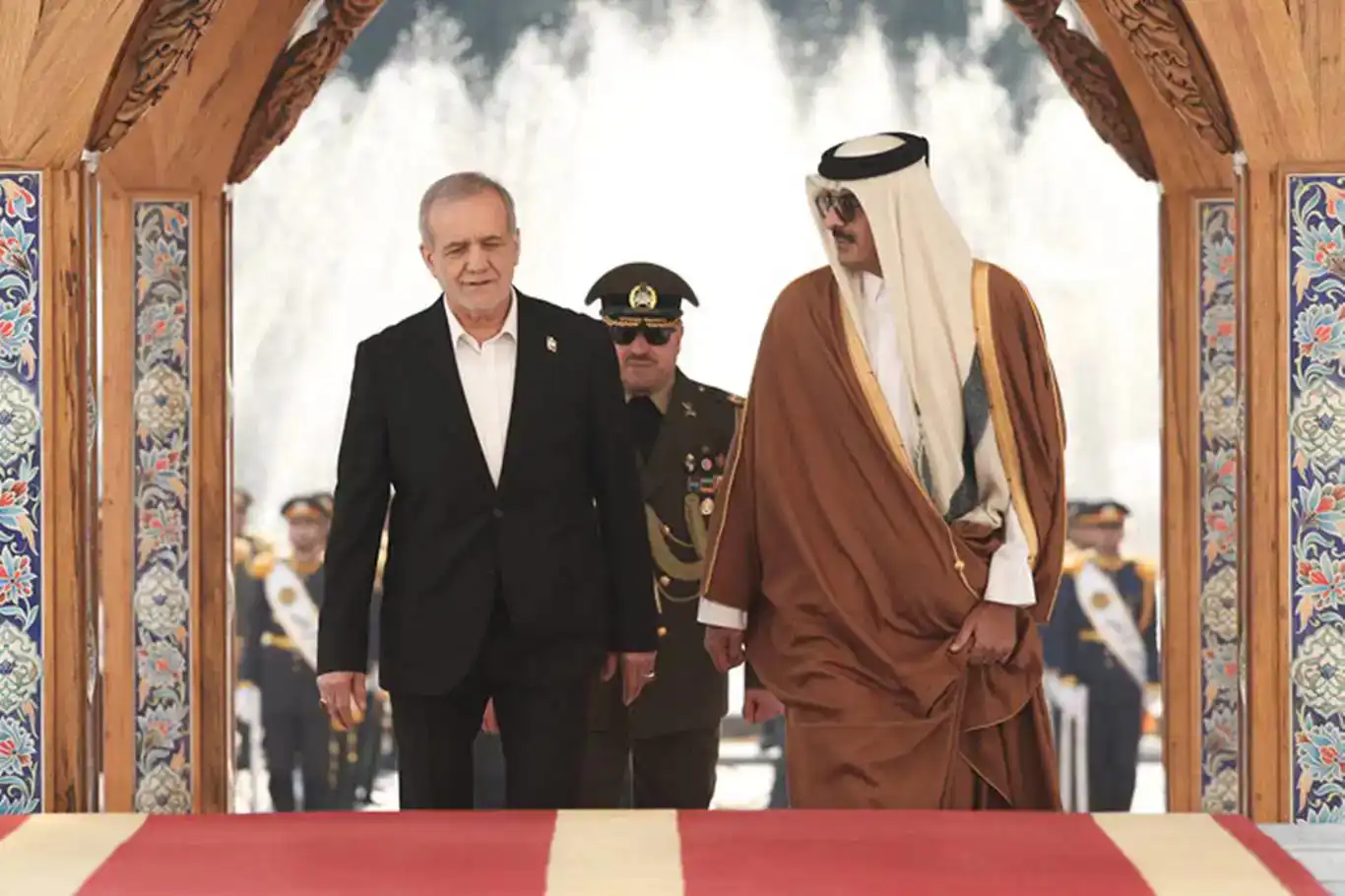Pezeshkian to Qatar Emir: Missile attack was response to US-Israeli aggression


Iranian President Masoud Pezeshkian has assured Qatari Emir Sheikh Tamim bin Hamad Al Thani that the Islamic Republic’s recent missile strike targeting the U.S. Al-Udeid Airbase in Qatar was not an act of hostility toward Doha, but a direct response to American military involvement in Israeli strikes on Iranian soil.
In a phone call between the two leaders, President Pezeshkian emphasized that the operation was a retaliatory measure aimed squarely at Washington for what Tehran views as its active role in the recent Israeli aggression against Iran. “The missile strike on Al-Udeid was not against the Qatari government or people,” Pezeshkian affirmed. “It was a calibrated and proportional response to U.S. complicity in attacks that violated Iran’s sovereignty.”
The Iranian leader made it clear that Iran will not engage in diplomacy under duress, warning that military threats will be met with firm defensive measures. He reiterated that Tehran’s position remains grounded in justice and national dignity, stressing that Iran’s actions were limited, measured, and intended to deter further escalation.
Pezeshkian also praised the resilience of the Iranian people, stating that the nation has once again demonstrated its resolve in defending its sovereignty and rights. “The Israeli regime and its international backers must now realize that the era of unchecked aggression is over. The resistance of the Iranian people has proven that our enemies cannot impose their will through force,” he added.
The phone conversation came amid heightened tensions following a series of reciprocal strikes between Iran and Israel, which have drawn in regional and international actors. The strike on the Al-Udeid base marks a rare direct Iranian attack on a U.S. military installation in the Gulf, underscoring the gravity of the current standoff.
While Doha has not publicly commented in detail on the incident, regional observers noted that Iran’s outreach to Qatar reflects a broader effort by Tehran to contain the fallout and avoid damaging relations with neighboring countries.
The development adds to the growing complexity of the geopolitical landscape in the Middle East, as Iran seeks to defend itself while avoiding broader regional confrontation. (ILKHA)
LEGAL WARNING: All rights of the published news, photos and videos are reserved by İlke Haber Ajansı Basın Yayın San. Trade A.Ş. Under no circumstances can all or part of the news, photos and videos be used without a written contract or subscription.
Palestinian Resistance fighters inflicted a major blow on Israeli occupation forces in southern Gaza on Tuesday, killing five Israeli soldiers and injuring 17 others, several critically, in a sophisticated double ambush in the city of Khan Younis.
The Government Media Office in Gaza announced Tuesday that 516 Palestinians have been killed and at least 3,799 wounded in what it described as a series of “Israeli-American death traps” targeting civilians struggling to access food aid across the besieged Gaza Strip.
Thousands of Iranians gathered in Tehran’s iconic Enghelab Square on Tuesday to express deep appreciation and unwavering support for the country’s armed forces in the wake of their decisive response to recent Israeli and American provocations.
Sheikh Ikrema Sabri, the respected preacher of Al-Aqsa Mosque, has denounced the ongoing Israeli closure of the holy site as a “blatant violation of its sanctity” and a deliberate act of religious oppression against Palestinians and Muslims worldwide.